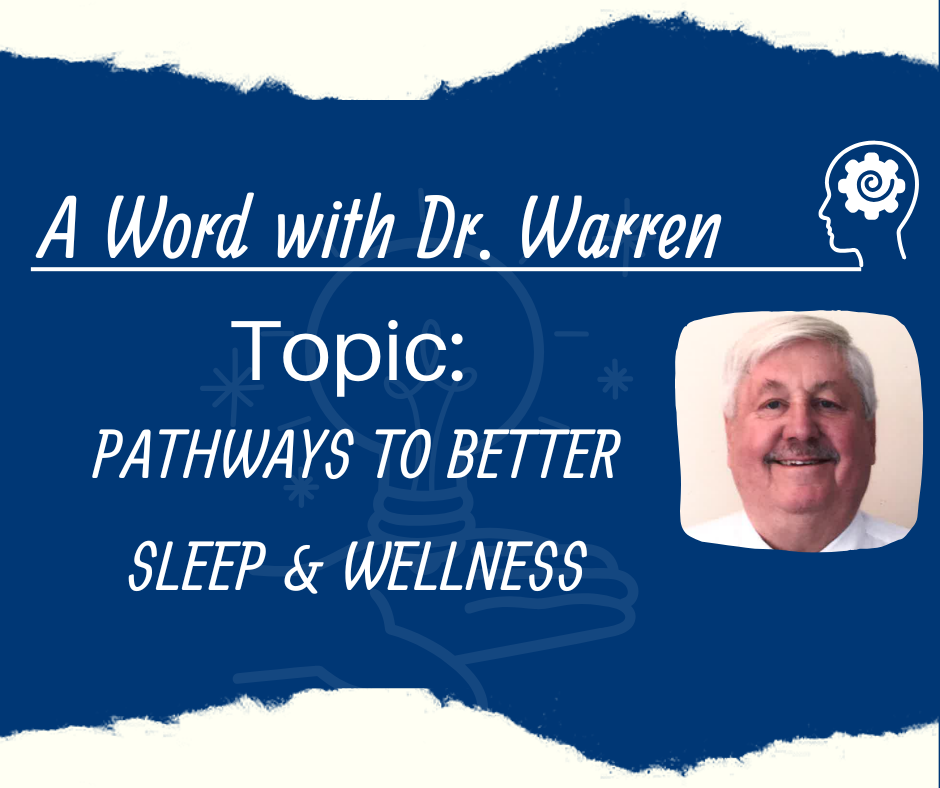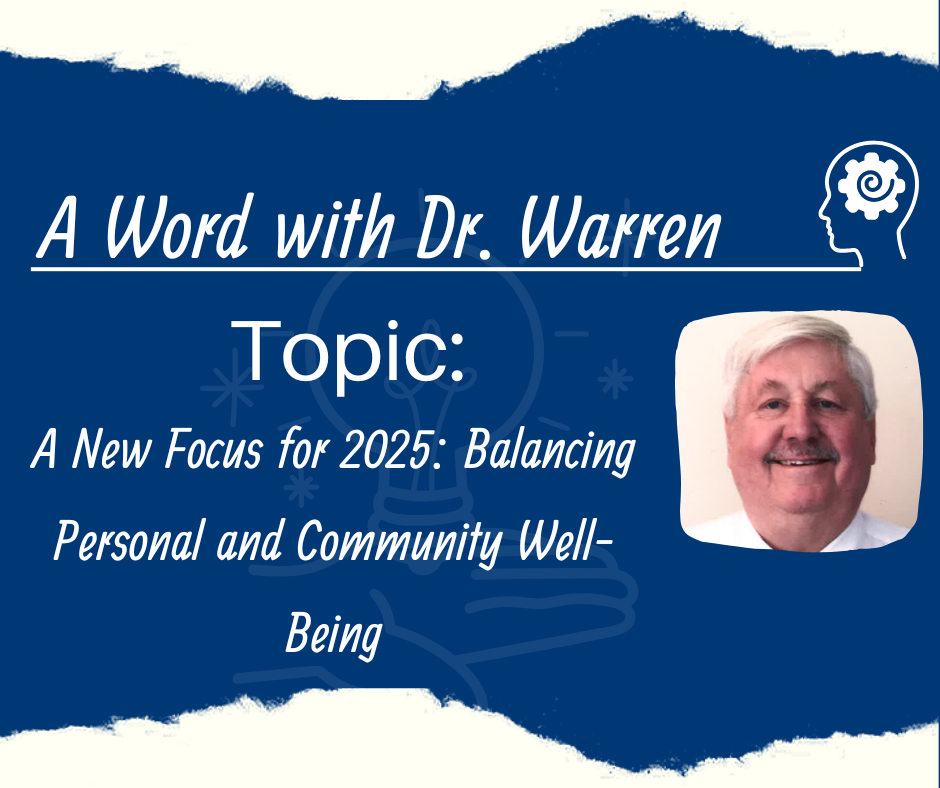Wednesday With Dr. Warren is a segment by Warren A. Kass, Ph.D. Consulting Clinical Psychologist at Magdala House. Dr. Kass is a graduate of Marquette University, has a doctorate from St. Louis University, and has over 51 years of experience as a clinical psychologist. Wednesday With Dr. Warren is an informative, thought-provoking piece that will inspire us to live, think, and be better people.
WHAT IS STRESS?
Stress is a state of worry or mental tension caused by a difficult situation. The degree to which an individual finds a situation difficult depends on his or her temperament and how they evaluate it. Let’s face it: a “bad” event usually upsets and stresses most people. For some, mild to moderate stress might occur when a storm causes a tree to fall onto their house, causing damage to the home. Additionally, severe stress might occur if one loses a job and is faced with how to provide basic needs to their family or if a person is a victim of an assault that requires medical attention. Even more severe stress will occur when a person experiences the death of a child or a spouse.
Life stressors vary in the duration of the stressor. Securing a job with equal or better pay quickly can substantially reduce the stress experienced from being fired. Being involved in a contentious custody battle with the spouse can last years, be very expensive, and be a source of ongoing, severe stress.
As you can see, stress severity is often influenced by the situation, duration and the individual.
HOW STRESS AFFECTS YOUR HEALTH
When a person initially experiences a stressor, it is perceived as a threat to homeostasis, the ability to maintain a relatively stable internal state that persists despite changes in our environment. The sympathetic nervous system responds to stress with a fight, flight or freeze response. As a result of stress, our sympathetic nervous system focuses our body’s attention on getting out of harm’s way as quickly as possible. Physiologically, the body releases the neurotransmitters dopamine, epinephrine (Adrenaline), acetylcholine, and the hormone cortisol. These biochemicals increase our awareness of and readiness to respond to the threat. Digestion is slowed, heart rate is increased, blood supply to our muscles is increased, the immune system is weakened, and sex drive is diminished. Once the threat is resolved, the system returns to normal levels; blood pressure reduces, breathing is easier and more rhythmic, sex drive returns, cortisol levels drop, as do neurotransmitter levels.
When stress is prolonged, the physiological responses continue and can lead to the development of high blood pressure, digestive problems leading to irritable bowel syndrome and acid reflux, muscle tension which can cause headaches, migraines and other physical discomfort, osteoporosis and problems with memory, attention, and decision making as well as sleep disturbances. With prolonged stress, there is an increased risk of depression, anxiety, and other mental health disorders.
WAYS TO REDUCE STRESS
Fortunately, many of life’s stressors are brief and of mild to moderate intensity. When the excessive worry and tension associated with the stressors finally diminishes, homeostasis returns. If the stressor is prolonged, there are several ways to minimize the negative effects on one’s health.
Cortex-based interventions for stress involve intentionally distracting oneself by doing cognitive tasks like counting backward by sevens from 100 to 0, recalling the names of people and facts about them that you recently met at a social event, or recalling the names of good restaurants and the meal or meals you had there during your last vacation. Some benefit from weighted blankets, weighted stuffed animals, stress balls, or supplements marketed to reduce stress or aromatherapy with lavender and eucalyptus. Stress reduction experienced from taking supplements or using aromatherapy may be a placebo, nonetheless, the belief that the supplement or aromatherapy are effective can have a powerful impact on relieving stress.
Other stress-reduction interventions include meditation, yoga, humming, repeating the “Om” sound, laughing out loud, spending time with loved ones, getting a massage, following a healthy diet, and getting enough sleep. These interventions activate the vagus nerve, which helps to reduce the fight, flight, or freeze response of the sympathetic nervous system.
Recently, technology has introduced devices that are marketed for stress/anxiety reduction. Two such devices include the Apollo Neuro, which produces subtle buzzes to create a parasympathetic response, and Sensate, a wearable vagus nerve stimulator.
Other interventions for stress reduction include relaxation training, mindfulness and exercise. These interventions generate endorphins, the body’s opioid that reduces the perception of pain and triggers positive feelings and a sense of well-being. These interventions, especially when practiced routinely, also stimulate the neurotransmitters dopamine and serotonin that increase feelings of well-being and happiness.
Practicing gratitude and maintaining a gratitude journal focuses our attention on the positive aspects of our lives and boosts optimism. The more people reflect on what is appreciated, the more content they feel. Share the journal with others. Verbalizing what you appreciate with others and listening to what others enjoy reinforces our good mood and provides us with social opportunities that reduce stress. Whenever possible, thank others for their efforts and provide appreciative comments– CATCH EM BEING GOOD will benefit you and the other person emotionally and provide a more pleasant and cohesive home and work environment.
If a person cannot implement any or all of these coping strategies because they are currently overwhelmed by acute and severe stress, some medicines that increase serotonin and dopamine levels in the bloodstream can be useful. Often prescribed by a primary care physician or psychiatrist, the temporary use of these medicines helps to regain some emotional strength and determination. A trained cognitive behavioral therapist can also assist in developing a more tolerant and objective view of life’s tragedies and accomplishments.
By consistently practicing these stress-reduction techniques and seeking help from a medical professional, we can gain a sense of control and power that may help us cope with life’s stresses and tragedies. As a result, we can be tolerant and accepting and focus on what we can do to resolve the problem.
References upon request.







